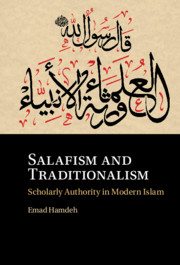7 - Challenging Early Ḥadīth Scholarship
from Part III - Ḥadīth
Published online by Cambridge University Press: 08 March 2021
Summary
This chapter begins with a discussion of the different reactions toward criticism of ḥadīth found in the Ṣaḥīḥayn. Is there a consensus on the authenticity of the Ṣaḥīḥayn or have they always been open to re-examination? Next, I analyze Albānī’s ḥadīth methodology and the criticism he attracted. One would imagine that Albānī was a very strict and cautious ḥadīth scholar, but much of the criticism he received was due to leniency in his methodology. In particular, he was often criticized for using abridged versions of ḥadīth manuals to make decisions. Finally, the chapter ends by looking at the impact Albānī had on modern ḥadīth studies. In the 1960s it was not common practice for scholars to cite the ḥadīth they quoted or even note their level of authenticity. However, after Albānī we find that many authors, even his critics, started grading each ḥadīth. The most important result was that a generation of university students tried to evaluate any ḥadīth they would use in their dissertations.
- Type
- Chapter
- Information
- Salafism and TraditionalismScholarly Authority in Modern Islam, pp. 180 - 203Publisher: Cambridge University PressPrint publication year: 2021



